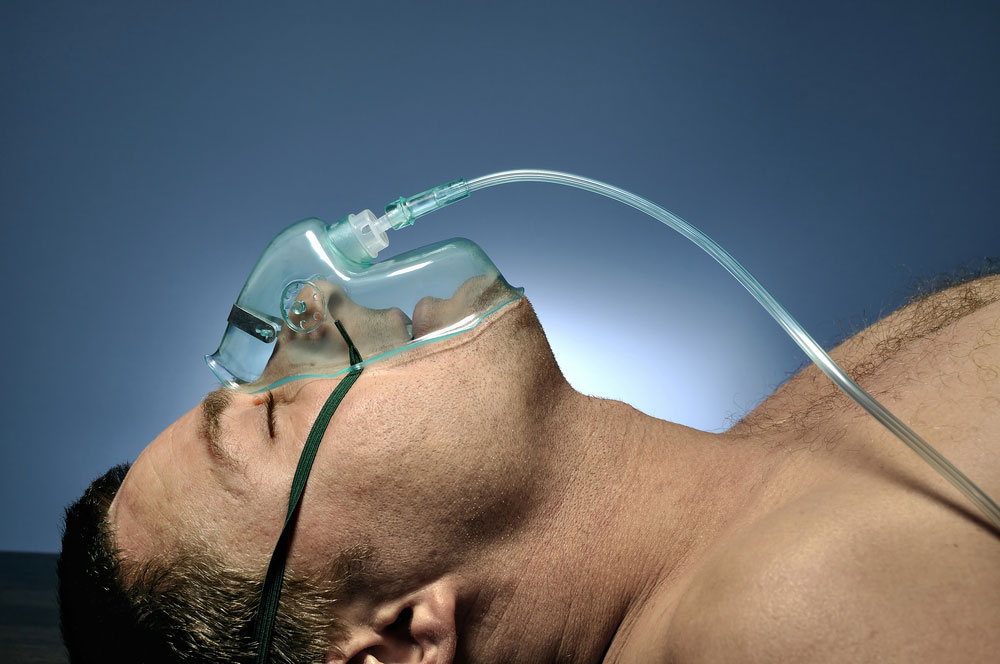
"Going under" for surgery might lead to future memory problems, but any effects appear to be small, a new study suggests.
Middle-age adults who underwent surgery using general anesthesia performed slightly worse on memory tests afterward, according to the study, published today (Feb. 22) in the journal Anaesthesia. The people in the study had no signs of Alzheimer's disease or dementia, or even mild cognitive impairment, before the surgery.
However, though the changes were noticeable for researchers, "the cognitive changes after surgery are small — most probably asymptomatic and beneath a person's awareness," study author Dr. Kirk Hogan, a professor of anesthesiology at the University of Wisconsin-Madison School of Medicine and Public Health, said in a statement.
Brain changes
The study analyzed participants from the Wisconsin Registry for Alzheimer's Prevention (WRAP), in which middle-age people underwent a battery of psychological and cognitive tests over several points in time. The average age of people in the WRAP was 54 years old.
The researchers identified 312 people in this group who had had one or more surgeries using general anesthesia and compared them with 652 participants who had not. (The team excluded those who had neurological or heart surgery, both of which can affect cognitive performance). All of the participants had normal cognitive functioning at the start of the study.
On average, those who went under general anesthesia had small declines in their immediate memory over four years, compared with those who did not have. In addition, people who spent more time under general anesthesia (for longer surgeries) showed greater declines in executive functioning, which includes skills such as planning and focusing. However, these changes were small — for instance, those who had surgery had a one-point drop in immediate memory, out of a possible 30 points.
"The evidence is increasing, albeit indirect, that there is, at the time of surgery, a combination of factors that lead to a reduction in cognitive performance," said Dr. Beverley Orser, a professor of physiology and anesthesia at the University of Toronto, who was not involved in the study.
Get the world’s most fascinating discoveries delivered straight to your inbox.
Still, the study can't directly tie memory declines to anesthesia; the underlying condition, other aspects of surgery, or other unknown factors could also be responsible for those declines, Orser told Live Science.
For instance, when someone breaks a leg, their body releases inflammatory chemicals, such as cytokines, which then travel to the brain and worsen its performance, Orser said. So, if that person has cognitive declines after surgery, is it the surgery, the anesthesia or the original injury that's to blame, Orser asked.
Other studies tying anesthesia and surgery to memory problems have found conflicting results. For instance, a 2016 study in the journal Anesthesia found significant post-surgery declines in cognitive function in older adults, especially if they started out with cognitive impairment. And a study published Feb. 19 in the journal JAMA Neurology found high levels of chemical markers of brain cell damage in patients who had surgery under anesthesia. However, not all studies find a link between anesthesia and cognition. For instance, a study of more than 8,000 elderly and middle-age twins found a negligible difference in cognition if one twin had surgery.
Originally published on Live Science.

Tia is the editor-in-chief (premium) and was formerly managing editor and senior writer for Live Science. Her work has appeared in Scientific American, Wired.com, Science News and other outlets. She holds a master's degree in bioengineering from the University of Washington, a graduate certificate in science writing from UC Santa Cruz and a bachelor's degree in mechanical engineering from the University of Texas at Austin. Tia was part of a team at the Milwaukee Journal Sentinel that published the Empty Cradles series on preterm births, which won multiple awards, including the 2012 Casey Medal for Meritorious Journalism.
 Live Science Plus
Live Science Plus





